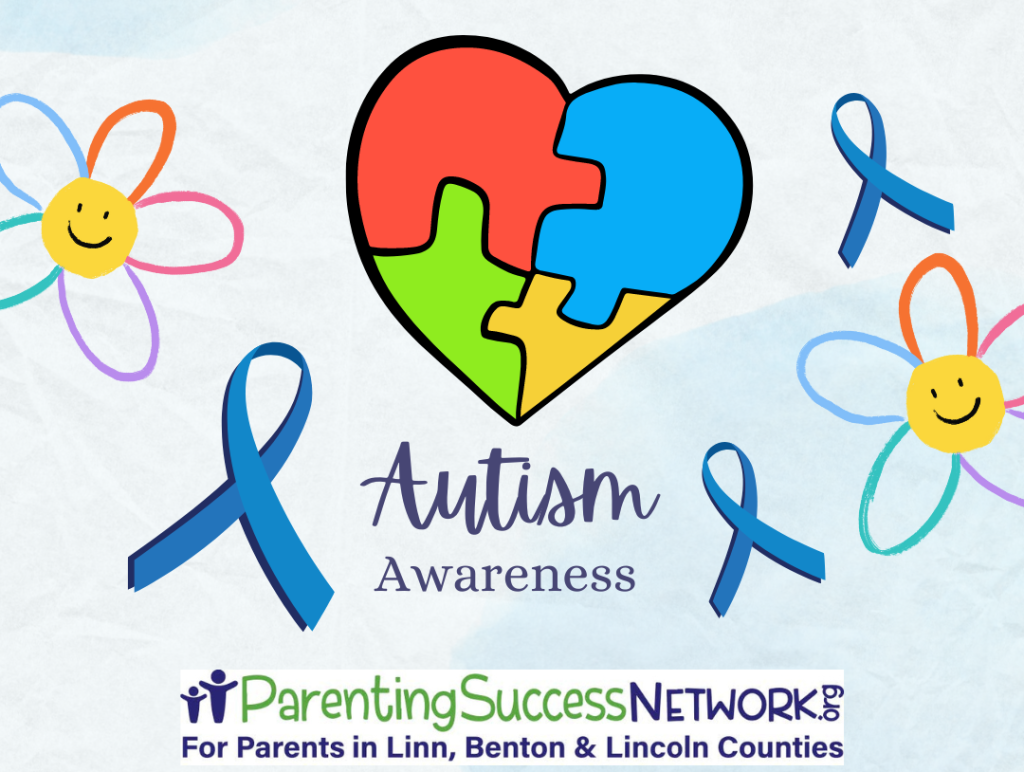Autism Awareness
 April is National Autism Awareness Month! Begun in 1972 as National Autistic Children’s Week, it was founded by the Autism Society to increase awareness and spark change in schools, communities, medical facilities, and businesses.
April is National Autism Awareness Month! Begun in 1972 as National Autistic Children’s Week, it was founded by the Autism Society to increase awareness and spark change in schools, communities, medical facilities, and businesses.
Now known as National Autism Awareness Month, raising awareness isn’t the only goal. World Autism Awareness Day, held annually on April 2nd, not only brings awareness but also celebrates the unique talents and skills of people with autism around the world.
What is Autism?
Autism is a complex brain disorder that often inhibits a person’s ability to communicate, respond to surroundings, and form relationships with others. Because autism can affect people in a range of ways, it is often referred to as Autism Spectrum Disorder.
According to World Health Organization, about one in 270 people in the world has Autism Spectrum Disorder (ASD). ASD affects people of all racial, ethnic, and socioeconomic backgrounds.
ASD is a group of developmental disabilities that causes challenges in many areas of one’s life. Some of the profoundly affected areas include social, communication, and behavior.
Children with ASD can be nonverbal or have restricted or repetitive behaviors.
Autism Awareness Month and World Autism Awareness Day aim to increase knowledge of autism around the world and impart information about the importance of early diagnosis and early intervention.
Early Intervention for Autism Spectrum Disorder
According to the National Institute of Child Health and Human Development, research shows that early diagnosis of and interventions for autism are more likely to have major long-term positive effects on symptoms and later skills.
Autism spectrum disorder (ASD) can sometimes be diagnosed in children before they are 2 years of age.
In the first three years of life, a young child’s brain is still forming. This “plasticity” means treatment at this stage has a better chance of being effective over the long term.
Early interventions not only give children the best start possible but also the best chance of developing to their full potential.
The sooner a child gets help, the greater the chance for learning and progress. New guidelines recommend starting an integrated developmental and behavioral intervention as soon as ASD is diagnosed or seriously suspected.
Early intervention for ASD includes family support, speech therapy, hearing evaluation, physical therapy, and nutrition services.
With early intervention, some children with autism make so much progress that they are no longer on the autism spectrum when they are older. Early intervention programs provide help with physical skills, thinking skills, and communication skills. They also provide support and assistance to parents.
The NICHD notes, “Many of the children who later go off the spectrum have some things in common: diagnosis and treatment at younger ages, a higher intelligence quotient than the average for a child with autism, and better language and motor skills.”
The organization Autism Speaks provides access to evaluation and support resources by state. For resources in Oregon, visit Autism Speaks Oregon.
How to observe #AUTISMAWARENESSMONTH
The Autism Society offers these suggestions for participating in Autism Awareness Month:
Host an event supporting autism awareness.
Attend an event and show your support.
Share your story and make your voice heard.
Support research for treatment and therapies that will improve the lives of those with autism.
Speak out about autism to help eliminate the stigma associated with it.
Use #AutismAwarenessMonth to share on social media.
Resources for Support
Here in Oregon, resources are available for families impacted by Autism Spectrum Disorder.
The Autism Society of Oregon offers support groups both in person and online for parents of children on the autism spectrum living in Oregon.
In addition, the Oregon Family Support Network provides support for families raising children with mental health or behavioral challenges.
Additional resources can be found in the resources section of this website.